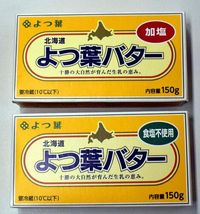Yotsuba Milk Industry, based in Sapporo City, has announced a significant voluntary recall of approximately 6.28 million units of butter due to concerns over metal contamination. The company revealed on April 15, 2025, that some batches of butter produced at its factory in Otofuke Town, Hokkaido, may contain stainless steel fragments.
The recall affects 13 different types of butter products, including popular items such as 'Yotsuba Butter (salted) 150g' and 'Seven Premium Hokkaido Butter (unsalted) 150g'. The affected products were manufactured between November 1, 2024, and April 11, 2025, and are identified by manufacturing control numbers that begin with 'CC' and have expiration dates ranging from April 30, 2025, to October 8, 2025.
According to Yotsuba Milk Industry, the contamination is believed to have occurred due to damage to a belt on the production line that supplies aluminum paper for wrapping the butter. This malfunction may have allowed metal fragments measuring 18 mm in length and 0.07 mm in thickness to mix with the butter.
The company stated, "We deeply apologize for causing great inconvenience" to customers and is urging consumers to check the packaging of their butter products for the specified manufacturing numbers. Products with control numbers starting with 'CA' or 'CB' are not affected by this recall.
As the news of the recall spread, consumers expressed concerns over food safety and the implications of metal contamination in dairy products. The company has established a customer service hotline for inquiries, which can be reached at the toll-free number 0120-428841.
This incident follows a series of food safety issues in Japan, where consumers have become increasingly vigilant about the quality and safety of food products. The recall of Yotsuba Milk Industry's butter highlights the importance of stringent quality control measures in food manufacturing.
In recent years, Japan has faced several high-profile food safety scandals, leading to heightened awareness among consumers regarding the potential risks associated with food contamination. This latest incident serves as a reminder of the ongoing challenges that food manufacturers must navigate to ensure product safety.
Yotsuba Milk Industry, a well-known dairy producer in Japan, has built its reputation on quality and safety. However, with this recall, the company faces the daunting task of restoring consumer trust. The firm has committed to investigating the cause of the equipment failure and implementing corrective measures to prevent future incidents.
The company’s swift action in initiating the recall is seen as a positive step in addressing the issue and protecting consumers. Industry experts emphasize that proactive measures in response to potential contamination can help mitigate risks and maintain consumer confidence in food products.
As the recall unfolds, Yotsuba Milk Industry will likely face scrutiny regarding its manufacturing practices and the effectiveness of its quality control systems. The company’s response to this incident will be crucial in shaping public perception and ensuring the safety of its products moving forward.
In light of this recall, consumers are advised to remain vigilant and report any concerns regarding food safety to the appropriate authorities. The incident serves as a critical reminder of the importance of transparency and accountability in the food industry.
As the situation develops, Yotsuba Milk Industry is expected to provide further updates regarding the recall and any measures taken to enhance product safety. Consumers are encouraged to stay informed and follow the company’s announcements closely.
This recall reflects broader trends in the food industry, where increasing consumer awareness and demand for safety are prompting companies to adopt more rigorous quality control standards. As food safety continues to be a pressing concern, manufacturers must prioritize transparency and consumer trust to thrive in a competitive market.
Overall, the Yotsuba Milk Industry recall illustrates the complexities of food safety management and the critical need for ongoing vigilance in production processes. With the right measures in place, the industry can work towards ensuring that such incidents are minimized in the future.




